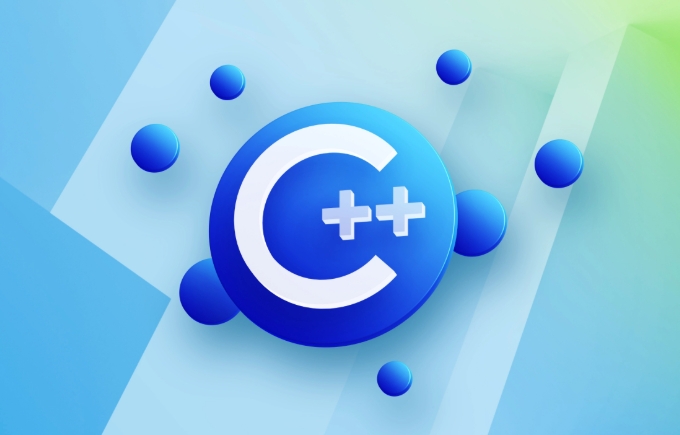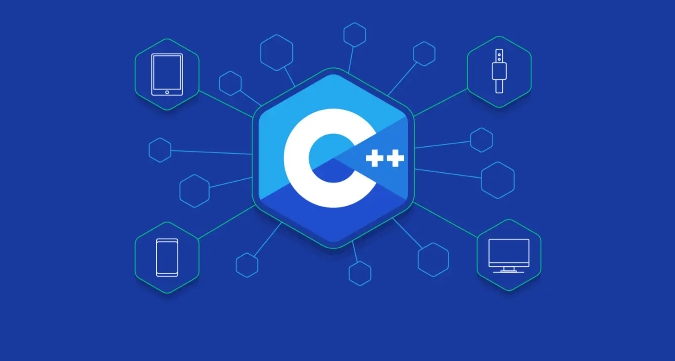Inheritance in C allows a derived class to inherit properties and behaviors from a base class to promote code reuse and reduce duplication. For example, classes like Enemy and Player can inherit shared functionality such as health and movement from a base Character class. C supports single, multiple, multilevel, hierarchical, and hybrid inheritance, each with distinct use cases. Access specifiers like public, protected, and private determine member accessibility in derived classes, while constructors and destructors must be explicitly called. Derived classes can override base class functions, especially using virtual functions for runtime polymorphism, enabling dynamic method resolution based on the actual object type.

Inheritance in C is a feature that allows a class (called a derived or child class) to inherit properties and behaviors (like variables and functions) from another class (called a base or parent class). This helps avoid code duplication and makes it easier to build and maintain applications.

Why Use Inheritance?
The main reason to use inheritance is code reuse. If you have two classes that share some common functionality, instead of writing the same code twice, you can create a base class with that shared code and have both classes inherit from it.

For example:
- Imagine you're building a game and have classes like
EnemyandPlayer. - Both might need health, position, and movement logic.
- You could create a base class called
Character, and haveEnemyandPlayerinherit from it.
This way, if you update how movement works, you only have to change it in one place — the Character class.

Types of Inheritance
C supports several types of inheritance:
- Single inheritance: One derived class inherits from one base class.
- Multiple inheritance: One derived class inherits from two or more base classes.
- Multilevel inheritance: A derived class inherits from another derived class (like a chain).
- Hierarchical inheritance: Multiple derived classes inherit from a single base class.
- Hybrid inheritance: A mix of the above types.
Each type has its own use cases. For example, multiple inheritance can be useful but also adds complexity — especially when dealing with naming conflicts or ambiguous calls.
Access Specifiers and Inheritance
When inheriting members, the access level matters. Here's what happens depending on the inheritance mode:
-
public inheritance: Members that are
publicin the base class remainpublicin the derived class;protectedmembers stayprotected. -
protected inheritance: All
publicandprotectedmembers becomeprotectedin the derived class. -
private inheritance: All inherited members become
privatein the derived class.
It’s important to remember that private members of the base class are never accessible directly in the derived class, even if the inheritance is public.
Also, constructors and destructors don’t get inherited automatically. But you can call the base class constructor from the derived class using an initialization list.
Overriding Functions
A derived class can override functions from the base class — this means providing a new implementation for a function that already exists in the parent class.
To do this:
- The function must have the same name, return type, and parameters in both classes.
- If you want to support runtime polymorphism (deciding which function to call at runtime), declare the function as
virtualin the base class.
This lets you write code like:
Character* player = new Player(); player->move(); // Calls Player's move(), not Character's
Without virtual functions, the compiler decides which function to call based only on the pointer or reference type — not the actual object type.
That’s basically how inheritance works in C . It’s powerful but needs careful handling, especially with access control and overriding behavior.
The above is the detailed content of What is inheritance in C ?. For more information, please follow other related articles on the PHP Chinese website!

Hot AI Tools

Undress AI Tool
Undress images for free

Undresser.AI Undress
AI-powered app for creating realistic nude photos

AI Clothes Remover
Online AI tool for removing clothes from photos.

Clothoff.io
AI clothes remover

Video Face Swap
Swap faces in any video effortlessly with our completely free AI face swap tool!

Hot Article

Hot Tools

Notepad++7.3.1
Easy-to-use and free code editor

SublimeText3 Chinese version
Chinese version, very easy to use

Zend Studio 13.0.1
Powerful PHP integrated development environment

Dreamweaver CS6
Visual web development tools

SublimeText3 Mac version
God-level code editing software (SublimeText3)

Hot Topics
 How to reduce the use of global variables in C?
May 23, 2025 pm 09:03 PM
How to reduce the use of global variables in C?
May 23, 2025 pm 09:03 PM
Reducing the use of global variables in C can be achieved by: 1. Using encapsulation and singleton patterns to hide data and limit instances; 2. Using dependency injection to pass dependencies; 3. Using local static variables to replace global shared data; 4. Reduce the dependence of global variables through namespace and modular organization of code.
 Usage of ? in c Analysis of three-item operator instance in c
May 23, 2025 pm 09:09 PM
Usage of ? in c Analysis of three-item operator instance in c
May 23, 2025 pm 09:09 PM
The syntax of the trigonometric operator in C is condition?expression1:expression2, which is used to select and execute different expressions according to the condition. 1) Basic usage example: intmax=(x>y)?x:y, used to select the larger value in x and y. 2) Example of nested usage: intresult=(a>0&&b>0)?a b:(a==0||b==0)?a*b:a-b, used to perform different operations according to different conditions. 3) Error handling example: std::stringerrorMessage=(errorCode==0)?"Successful&quo
 How to implement the logging system in C?
May 23, 2025 pm 09:18 PM
How to implement the logging system in C?
May 23, 2025 pm 09:18 PM
Implementing an efficient and flexible logging system in C can use the following steps: 1. Define log classes and process log information at different levels; 2. Use policy mode to achieve multi-objective output; 3. Ensure thread safety through mutex locks; 4. Use lock-free queues for performance optimization. This can build a log system that meets the needs of actual application.
 C : Is Polymorphism really useful?
Jun 20, 2025 am 12:01 AM
C : Is Polymorphism really useful?
Jun 20, 2025 am 12:01 AM
Yes, polymorphisms in C are very useful. 1) It provides flexibility to allow easy addition of new types; 2) promotes code reuse and reduces duplication; 3) simplifies maintenance, making the code easier to expand and adapt to changes. Despite performance and memory management challenges, its advantages are particularly significant in complex systems.
 How to implement function overloading in C?
May 23, 2025 pm 09:15 PM
How to implement function overloading in C?
May 23, 2025 pm 09:15 PM
Function overloading is implemented in C through different parameter lists. 1. Use different parameter lists to distinguish function versions, such as calculatedArea(radius), calculatedArea(length,width), calculatedArea(base,height,side1,side2). 2. Avoid naming conflicts and excessive overloading, and pay attention to the use of default parameters. 3. Functions cannot be overloaded based on the return value type. 4. Optimization suggestions include simplifying the parameter list, using const references and template functions.
 What does if in c mean? Analysis of keywords in c
May 23, 2025 pm 09:12 PM
What does if in c mean? Analysis of keywords in c
May 23, 2025 pm 09:12 PM
In C, if is a keyword used for conditional judgment, allowing the program to execute different code blocks according to specific conditions. 1) Basic usage: if(number>0) execute the corresponding code block. 2) if-else structure: handles two situations, such as number>0 or number0, number
 How to understand stream buffers in C?
May 23, 2025 pm 09:00 PM
How to understand stream buffers in C?
May 23, 2025 pm 09:00 PM
The stream buffer in C is a memory area used to temporarily store data, affecting the efficiency of I/O operations and the correctness of data. 1) Buffer types include unbuffered, fully buffered and line buffered. 2) The buffer size affects I/O performance, and a larger buffer can reduce the number of operations. 3) The refresh mechanism can be implemented through flush() or std::endl. Refreshing in time can prevent data loss.
 C tutorial for people who know Python
Jul 01, 2025 am 01:11 AM
C tutorial for people who know Python
Jul 01, 2025 am 01:11 AM
People who study Python transfer to C The most direct confusion is: Why can't you write like Python? Because C, although the syntax is more complex, provides underlying control capabilities and performance advantages. 1. In terms of syntax structure, C uses curly braces {} instead of indentation to organize code blocks, and variable types must be explicitly declared; 2. In terms of type system and memory management, C does not have an automatic garbage collection mechanism, and needs to manually manage memory and pay attention to releasing resources. RAII technology can assist resource management; 3. In functions and class definitions, C needs to explicitly access modifiers, constructors and destructors, and supports advanced functions such as operator overloading; 4. In terms of standard libraries, STL provides powerful containers and algorithms, but needs to adapt to generic programming ideas; 5






